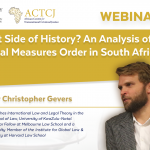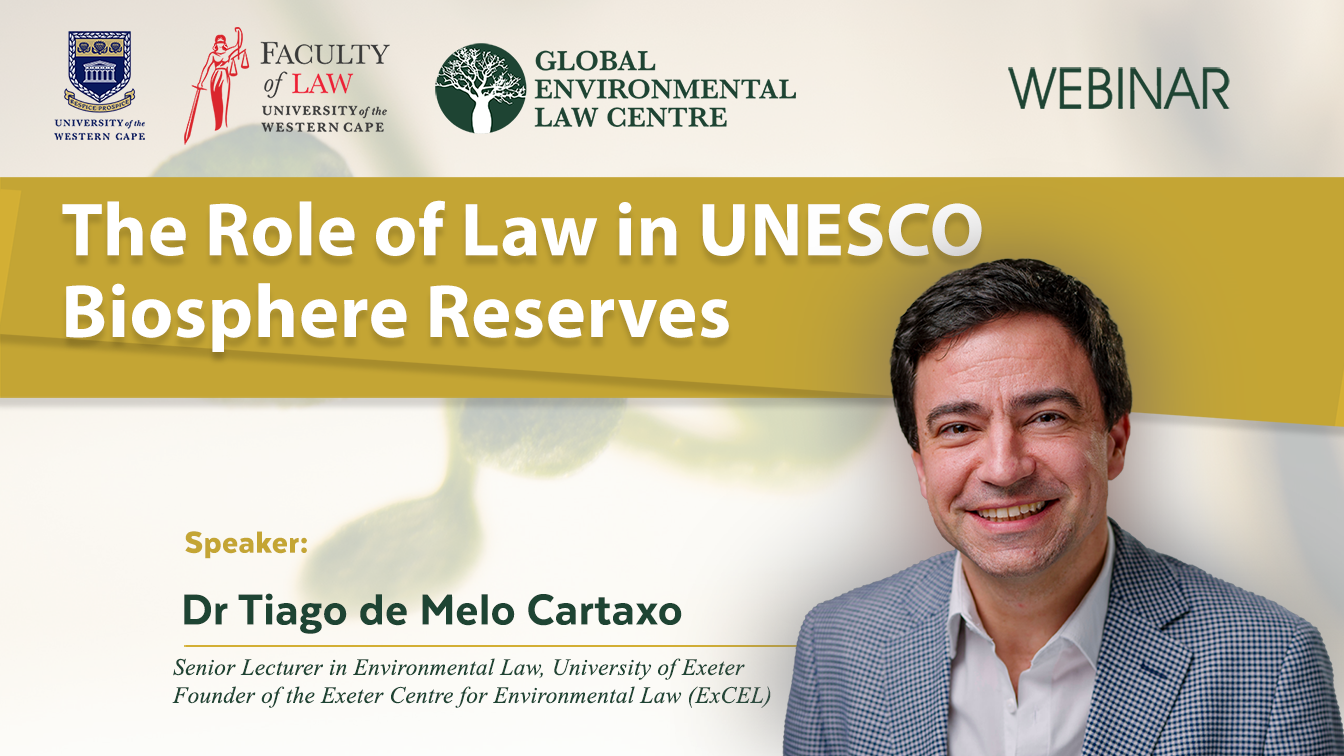
Webinar – The Right Side of History? An Analysis of the ICJ’s Provisional Measures Order in South Africa v Israel
February 12, 2024
Public Seminar – The Future of Parent-Child relations: Breaking the Existing Paradigms
February 16, 2024
Webinar – The Role of Law in UNESCO Biosphere Reserves
Werner Scholtz, professor of law at UWC, has called for a paradigm shift in international environmental law, which he says ‘is concerned with the conservation, inter alia, of sentient species, but generally ignores the welfare of individual animals.
Date: 21 February 2024
Time: 13:00 SAST
REGISTER IN ADVANCE TO JOIN VIA ZOOM
Abstract:
UNESCO Biosphere Reserves share a set of common objectives to be “sites of excellence” that support biodiversity conservation, sustainable development, and capacity for building research, education and learning at regional scales. Exeter Centre for Environmental Law (ExCEL) have been exploring the prospects and challenges of designating UNESCO Biosphere Reserves considering place-based socio-economic, heritage, geographical, and ecological conditions. Cornwall and the Isles of Scilly, in the United Kingdom, have been serving as a case study for this research experience. In 2023 ExCEL hosted a series of workshops looking at local/national best practices and with international focus, to engage with the local community and also conducted a series of meetings introducing the Biosphere concept to interested key stakeholders. The final study outlines how certain regions can harmonise existing legal frameworks, initiatives and designations with UNESCO Biosphere governance and soft law principles, emphasising the potential benefits. By integrating instruments such as local nature recovery strategies with the Biosphere framework, regions can foster better collaboration, strategic coordination, and a more adaptive approach towards conservation and sustainable development. A critical focus is to address the major barriers and challenges that lie ahead. Issues of resource allocation, legal complexities, and inconsistent data need to be addressed. Collaboration with diverse stakeholders, including local communities, businesses, and government bodies, can break down barriers, streamline policy implementation, and amplify the reach of local nature strategies.
Speaker:
Tiago de Melo Cartaxo is a Senior Lecturer in Environmental Law in the University of Exeter, where he has founded the Exeter Centre for Environmental Law (ExCEL) and is part of Law and Business Cornwall (LAB/C), teaching and researching in the areas of environmental rights, climate and resilience justice, circular economy and the energy transition. He currently is Associate Director for External Engagement in the Environment and Sustainability Institute (ESI).
Holding a degree in Law from the University of Lisbon and a Masters in Environmental Law from the University of Coimbra, Tiago has founded and coordinated NOVA Law Green Lab and was a postdoctoral researcher in the University of Surrey School of Law, working in transcontinental projects on governance and regulation of single-use plastics. He also worked as an attorney for law firms in Lisbon and advised local and national governments in the field of Environmental Law and Planning. Tiago’s research is multidisciplinary and traverses the following: Environmental and Climate Law; Environmental Rights and Environmental Justice; Adaptive Legal Mechanisms applied to the Environment; Law and Circular Economy; Regulation of Smart and Sustainable Cities; and the United Nations Sustainable Development Goals.

